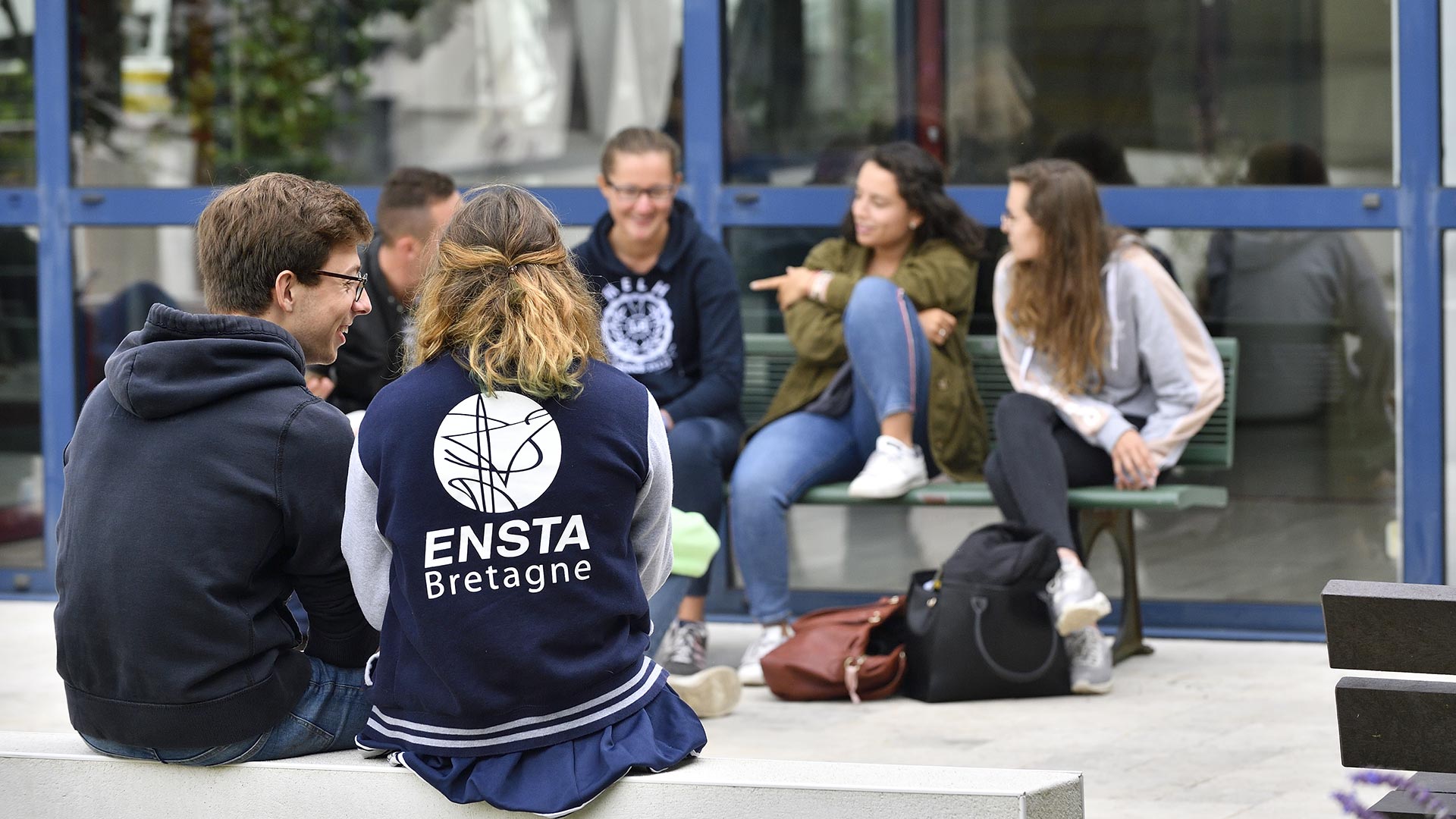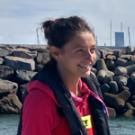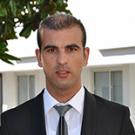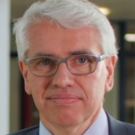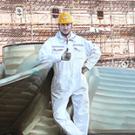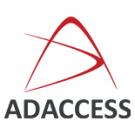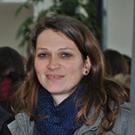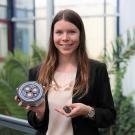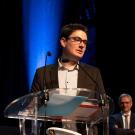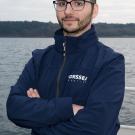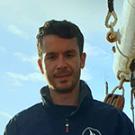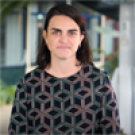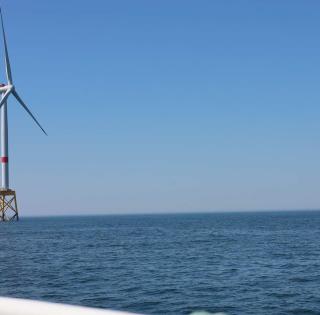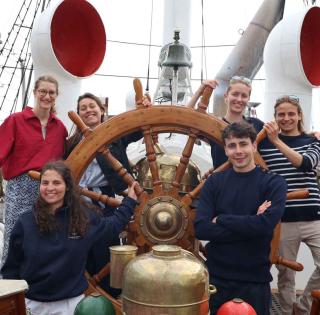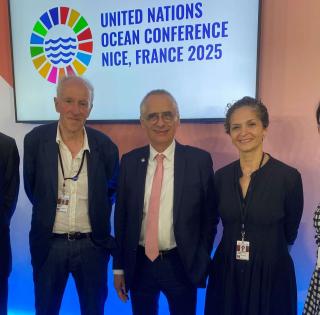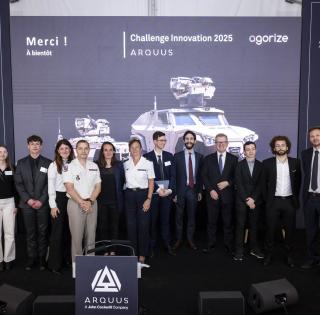
For more than 50 years, ENSTA Bretagne has been providing post-preparatory school general engineers with the skills they need for high-tech civilian or military careers in numerous sectors.
In response to the strong demand for engineers and Master’s graduates with backgrounds in the school’s areas of expertise, we have launched various programs over the past 15 years to train high-performing students from other educational backgrounds, such as 2-year polytechnic school or university graduates. The school plans to continue its growth in this direction.
960 students following 3- to 8-year syllabuses, including 855 degree and Master’s students and 105 PhD students
- 16 engineering degree, Master's and Advanced Master's programs, including 2 new Master's programs
- 20% of the student body (including PhD students) are international students
- 18% of engineering students (roughly 100) are enrolled in the military engineering program (IETA)
- 3 students are involved in high-level athletics at Pôle France Voile
- 9 startup businesses are in incubation at ENSTARTUPS
Advanced Master in Maritime Project Management (1 year post-Master syllabus)
This program responds to a strong demand from employers and has been certified by the Pôle Mer Bretagne Atlantique cluster. The Advanced Master in Maritime Project Management trains future project managers to lead, coordinate and assess international maritime projects.
Pascal Piriou, CEO of the PIRIOU Group and program sponsor, attended the inauguration on Monday September 17 along with the 8 Master's students and 8 students from Sciences Po Rennes’ Terre et Mer program. These partnered Master’s program classes are collaborating on a supervised applied maritime design project that they will complete before embarking on their end-of-course internships.
The French-Australian Double Master in Marine Engineering (3-semester syllabus)
Following on from the launch of Naval Group’s 12-submarine construction project in Australia, this program is jointly managed by the University of Adelaide. With the goal of developing naval industry skills in both countries, it trains experts in surface ship and submarine defense systems. After an initial semester of study at ENSTA Bretagne in Brest, the 10 students (5 French and 5 Australian) will continue their training in Australia at the University of Adelaide from February to July 2019. The Master's will wrap up with an end-of-course internship from August 2019 to January 2020.
- Learn more about our new French-Australian double degree
ENSTA Bretagne’s co-op engineering, Master's and Advanced Master's programs receive an impressive number of outstanding applications. The high quality of candidates for programs ranging from mechanical science to digital technology allows us to better respond to the expectations of high-tech firms in all sectors.
88 agreements across 31 countries help to attract international students to our school and to open doors abroad for our students. Some ENSTA Bretagne students will attend Imperial College London this year, while others are enrolled at polytechnic institutes in Milan and Montreal. Still others will begin studying at Georgia Tech in Atlanta, while here in Brest we’re hosting degree and postgraduate students from 18 countries: Australia, New Zealand, Lebanon, Saudi Arabia, Turkey, Argentina, Brazil, Colombia, India, Indonesia, Burkina Faso, Nigeria, Morocco, Tunisia, Algeria, Cameroon, Ivory Coast and Congo.
50% of ENSTA Bretagne's programs and research is focused on marine science and technology, contributing greatly to our international profile in the fields of naval architecture, marine renewable energies, hydrography and oceanography, marine and underwater observation systems and robotics.
ENSTA Bretagne is an active participant in the ISblue project. This new interdisciplinary graduate school for the Blue Planet is jointly managed by 9 Breton schools and their 15 research units and aims to increase the international visibility of their programs and research.
We are also proud to have won, for the second time, the World Robotic Sailing Championship, which took place in late August off the UK coast near Southampton. This year, the school’s multiple-award-winning robotics team will collaborate with the hydrography and oceanography department in their third joint open-air laboratory at Lake Guerlédan. In October and February, hydrographers and robotics majors will test the seabed mapping and observation systems of the future with the support of national and international partners.
ENSTA Bretagne’s facilities keep pace with our growing student body, and on our 17-acre campus, extension projects take place every 5 years or so. The most recent of these projects comprises 3 building sites and provides almost 2,000 m² of extra space, representing an 8.5% increase in the school’s floor area.
- The teaching facility addition was completed in September 2018 and provides an extra 375m² of space divided into 8 classrooms: six 24 to 40-seat rooms for supervised independent study and two 60-seat tiered classrooms, all of which are computerized.
- Construction is ongoing at the research center, where a 1,600m² structure housing new mechanical science experimental facilities will be inaugurated in early 2019. ENSTA Bretagne contributes to the IRDL research on pyrotechnics and durability in the marine environment that will be conducted in this new building. Our main interest is in systems’ (especially naval systems) durability and environmental interactions, and we model the behavior of composite materials and structures in order to predict their performance. IRDL maintains a close relationship with the private sector: among Breton labs, it has the highest percentage of theses financed by businesses.
- Also in 2019, a section of the IT building (Lab-STICC) will be renovated and updated to accommodate cutting-edge experimental facilities for cybersecurity and robotics.
A reorganization of the engineering program in 2018
The reorganization's main objectives were to arrange the 3-year schedule to allow for longer international internships, and to provide students with more time for school and extracurricular projects by reducing the number of classroom hours.
Certain programs saw additions to their curricula: cybersecurity (general engineering program and a Master's), data processing using artificial intelligence (general engineering program) and robotics (an additional Master's program).
The school also worked with students to establish a framework for rewarding involvement in extracurricular activities.
We intend to continue to accommodate growing student numbers with the expansion of campus facilities, and to accompany the growth of the ENSTARTUPS incubator. We are also working on numerous joint actions with our key partner IMT Atlantique, and will begin presenting our common initiatives to preparatory-class students this autumn.
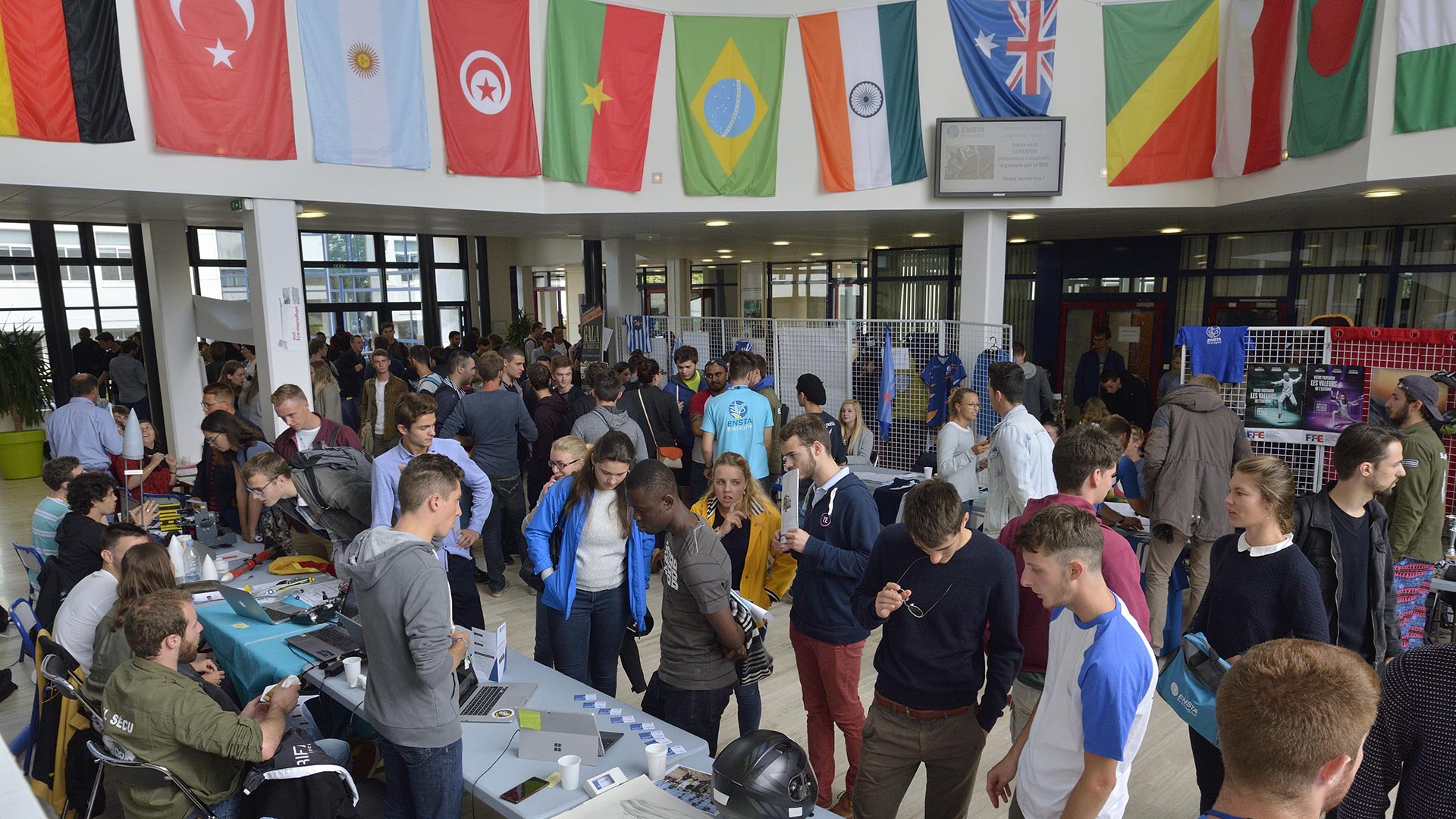
Rentrée : présentation de l'ensemble des clubs et associations aux nouveaux étudiants
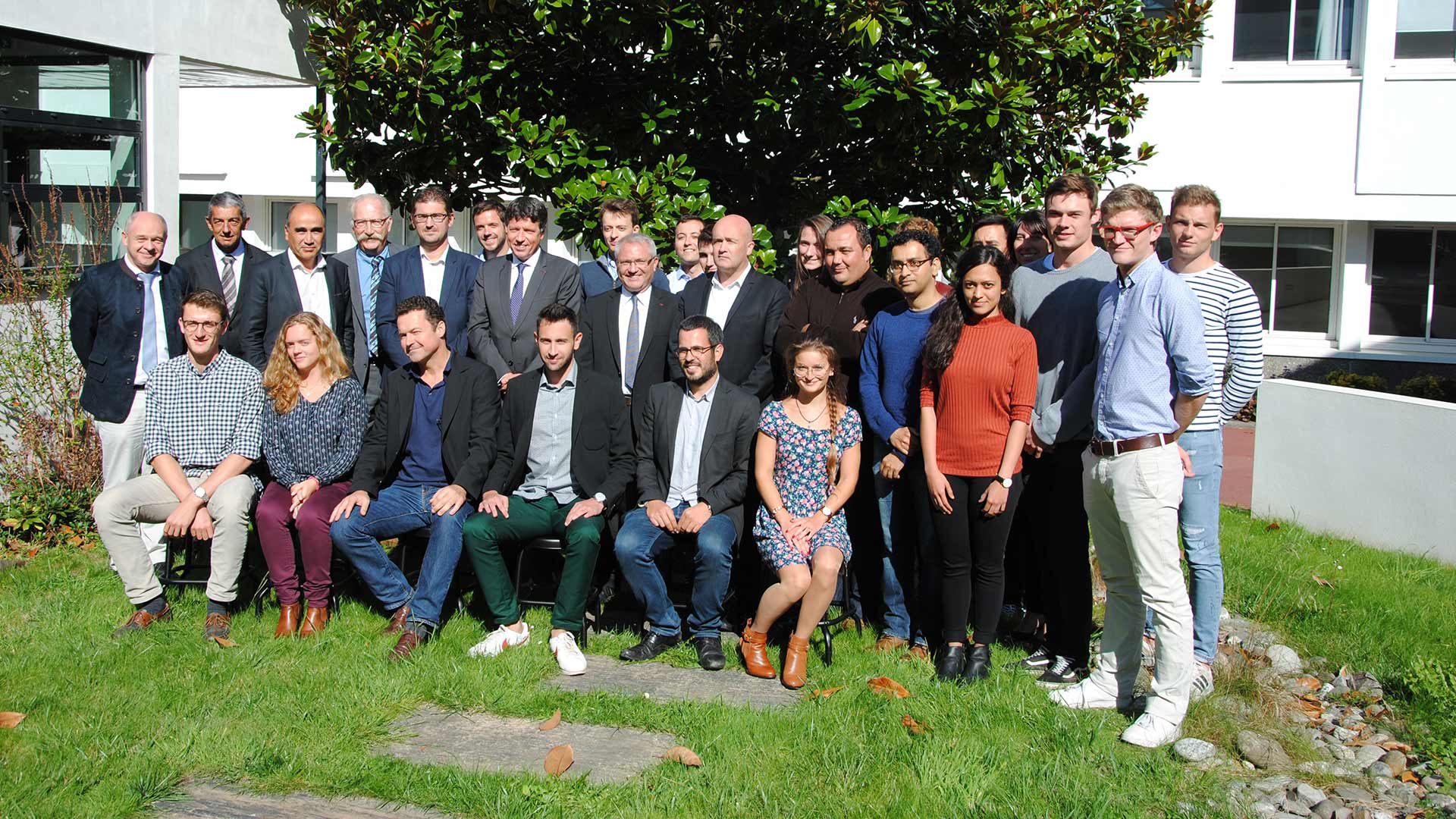
Rentrée 2018 du nouveau mastère spécialisé Management de Projets Maritimes et du nouveau double diplôme franco auustralien en génie maritime
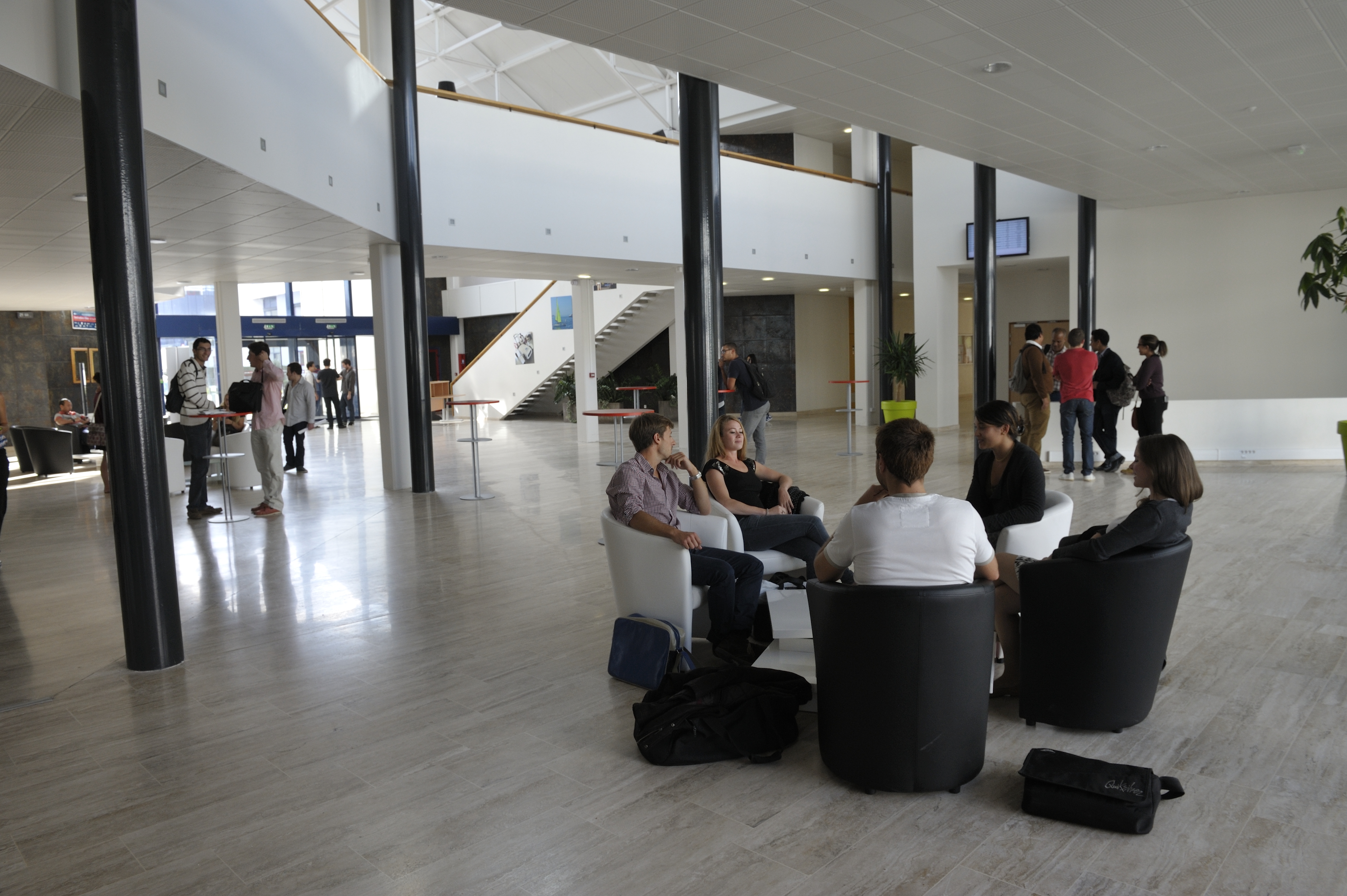
Rentrée des nouveaux étudiants en formation d'ingénieur






